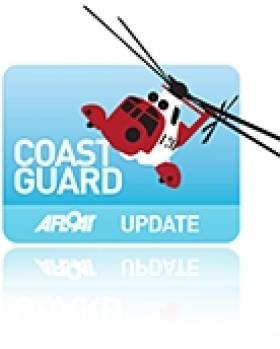Displaying items by tag: lone sailor
'Captain Calamity' Rescued Twice in Two Days
A lone sailor in the Irish Sea who was rescued south of Mumbles yesterday with no power and almost no safety equipment on board has just been rescued again after setting out for the second time and once again losing engine power, this time off Rhoose Point.
At quarter past eight yesterday the male on board the yacht 'Stravaig' contacted Swansea Coastguard to inform them that he had lost all electrical power and was drifting nine miles south of Mumbles Head. The man had no navigation lights, and only a mobile phone with a very low battery as a communications device. The only navigational equipment he had was a handheld GPS which also was very low on battery.
The Mumbles RNLI lifeboat was launched to the 12 metre yacht and towed her in to Mumbles. A second lifeboat also assisted with her mooring.
Almost exactly 24 hours later, at ten past eight this evening, Swansea Coastguard received another call from the same yacht, reporting that it had again run out of power. This time the Barry Dock lifeboat has been sent to tow the vessel back in to Barry. Barry Coastguard Rescue Team will meet the vessel in order to give the sailor advice on how to safely continue his journey.
Dave Jones, Swansea Coastguard Watch Manager said:
"When we give out safety advice to people going out for a trip in a yacht we recommend that people take adequate communications and navigational devices, flares, and check their engines. Unfortunately, this man followed none of this advice and set out not once, but twice, knowing that he did not have sufficient power to reach his destination.
All of the rescue resources tasked to this man's two rescues have been volunteers and we hope that the yachtsman will consider full equipping and preparing his vessel before continue his journey in order that we do not have to send them out to his rescue for a third time."






























































